Search Results
Showing results 321 to 340 of 801
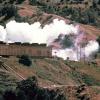
Geothermal Power Plant Model
Source Institutions
In this activity, learners make a model of a power plant that uses steam. Learners use simple materials like foil, a tin can, and a pot of water to model a geothermal power plant.
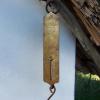
Hanging Around
Learners investigate weight by building a spring scale. They observe and record how it responds to objects with different masses.

Lighting Up Celery Stalks
Source Institutions
In this activity, learners conduct a series of hands-on experiments that demonstrate how the working of plants' veins, known as capillary action, enables water to travel throughout the length of a pla
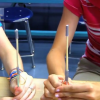
Stretch Your Potential
Source Institutions
In this activity, learners create a toy that demonstrates the First Law of Thermodynamics or the Law of Conservation of Energy.
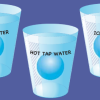
What Counts in Bounce
Source Institutions
In this activity learners compare the bounciness of warm and cold racquetballs to see if temperature makes a difference in how well they bounce.
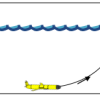
Exploring the Ocean with Robots
Source Institutions
In this activity, learners are introduced to robotic submarines called gliders. Learners make “gliders” from plastic syringes and compare these to Cartesian bottles and plastic bubbles.
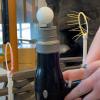
Bernoulli Obstacle Course
Source Institutions
In this activity, learners create their own obstacle course based on Bernoulli's Principle and try to get a floating ball from the start of their course to the finish line.
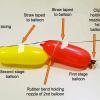
Achieving Orbit
Source Institutions
In this Engineering Design Challenge activity, learners will use balloons to investigate how a multi-stage rocket, like that used in the Interstellar Boundary Explorer (IBEX) mission, can propel a sat

Uncanny Motion
Source Institutions
In this activity, learners explore motion and airflow by setting two aluminum cans on their side and blowing air in-between them.
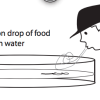
Getting Windy
Source Institutions
In this activity, learners create and understand surface currents. Learners create example surface currents and discover how landmasses affect the current.
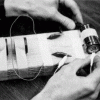
Motor Effect
Source Institutions
In this activity about electricity and magnetism, learners examine what happens when a magnet exerts a force on a current-carrying wire.

Squeeze the Stream
Source Institutions
In this activity related to flight, learners build a tiny stream channel to investigate how fluids (air and water) change speed as they flow between and around objects.
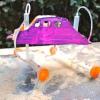
Hydraulic Car
Source Institutions
In this activity, learners build cars using syringes and water-powered hydraulics. Learners construct the car frame out of cardboard and set up a hydraulic system to raise and lower the car.
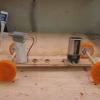
Propeller-Powered Car
Source Institutions
In this activity, learners construct cars that are powered by hand-made, electric propellers.
History of Siege Weapons
Source Institutions
In this activity (page 10 of the PDF) learners will explore the historical progression of siege weapons to gain an understanding of how the addition and modification of parts can change the efficiency

Planetary Rescue Squad
Source Institutions
This is an online Flash game where learners can experiment with ballistics and how to compensate for the varying levels of gravity found on the planets of our Solar System.

Newton's in the Driver's Seat
Source Institutions
In this playful physics activity (page eight of the pdf), learners use toy cars to explore how speed and weight affect the results of collision.

Fantastic Plastic
Source Institutions
In this activity, learners investigate the properties of plastic bags. Learners find out what happens when they slowly push a pencil through a plastic bag filled with water.
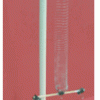
Wilberforce Pendulum
Source Institutions
In this activity, learners build a Wilberforce Pendulum, a special coupled pendulum in which energy is transferred between two modes of vibration, longitudinal ("bounce') and torsional ("twist"), on a

Spaghetti Bridge
Source Institutions
Learners explore the field of civil engineering by making a bridge using spaghetti as their primary building material.
